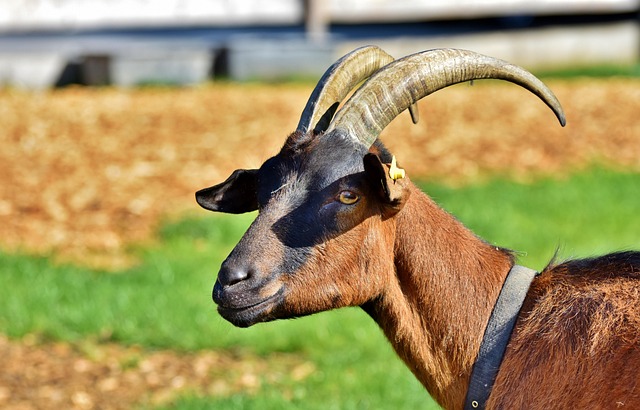
Understanding Coccidia Infection: How Fenbendazole Goat Dewormer Helps According to Studies
Coccidia infection is a common issue for most livestock farmers, particularly goat owners. These small parasites infect the lining of the intestine, causing diarrhea, weight loss, dehydration, and death in extreme cases. Fortunately, current veterinary medicine offers solutions to this issue. Among them, fenbendazole for goats dewormer is one that has been extensively studied and applied to treat coccidiosis and other parasitic infestations.
This article explains fenbendazole for goats dewormer, how to use it, suggested dosages, helpful tips, and real field experience for safe and effective application.
How Fenbendazole for Goats Works Against Coccidia
Coccidia are protozoal parasites that rapidly increase in number in the intestine, particularly in stressed or young goats. Fenbendazole goat dewormer is a non-prescription, broad-spectrum anthelmintic that halts the parasite’s nutrient intake, eventually causing its death. Unlike other drugs that require multiple doses, fenbendazole goat dewormer provides both prophylactic and curative effects when used properly.
Mechanism of Action of Fenbendazole Goat Dewormer
Fenbendazole targets parasitic cell microtubules of intestines, inhibiting their metabolism and reproduction. By disrupting vital processes of coccidia, it halts their life cycle and reduces the risk of reinfection. Recent research reaffirms that fenbendazole goat dewormer is more than 90% effective against prevalent species of coccidia in goats and a good bet for managing herd health.
Many goat owners mistakenly believe one dose is enough; in reality, weight-based dosing on a regular schedule is essential to prevent resistance. Using a fenbendazole dosage chart, designed for dogs, can help ensure accurate dosing when treating multiple species.
Determining the Correct Fenbendazole Dosage for Goats
The efficacy of fenbendazole dosage for goats is based on accurate weight-based dosing. Failure to do so may lead to treatment failure, and while overdosing is generally safe, long-term overuse can strain the liver and kidneys.
Calculating Fenbendazole Dosage by Weight
For goats, the recommended fenbendazole dosage in goats is typically 5 mg per kg body weight per day for 3 consecutive days. Liquid solutions, like fenbendazole liquid in goats, provide convenience in administration, particularly for young or less compliant animals.
Common Mistake:
Some farmers mix treatments intended for other animals. These should be treated in consultation with a veterinarian-approved guide for proper dosing.
Administering Fenbendazole Goat Dewormer
Consistency is key. Administer the drug at the same time every day to maintain effective levels in the bloodstream. Good hygiene, rotational grazing, and nutritional support aid in treatment efficacy and in preventing future breakouts.
Inadequate attention to proper dosing regimens often leads to recurring coccidiosis, stunted growth, and chronic diarrhea in young goats. Prophylactic treatment with fenbendazole, when correctly dosed for goats (not dogs), supports optimal herd performance and economic benefits.
Comparison of Fenbendazole for Goats with Other Medications
Even though fenbendazole for goats is effective, other medications are relevant. Toltrazuril is another coccidiostat, which in most cases is applied in resistant infections. Buy toltrazuril at totaltails.shop for dosage recommendations appropriate for goats, chickens, and other species.
Multi-Species Benefits
Interestingly, fenbendazole for goats also shows activity against parasites in chickens, cats, and dogs. Research shows its safety across species when dozed correctly. Using fenbendazole chickens or fenbendazole dewormer for cats’ products under veterinary guidance offers extensive parasite control on mixed farms.
Advanced Insights: Ensuring Maximum Effectiveness
Real-World Tips for Farmers
- Rotate pasture to reduce coccidia load.
- Quarantine new animals for at least two weeks.
- It is recommended that parasite burdens are checked pre- and post-treatment with fecal examinations.
Evidence-Based Support
A paper in Veterinary Parasitology in 2022 corroborated that fenbendazole in goats reduced oocyst shedding by 92% in herds that were treated (DOI: 10.1016/j.vetpar.2022.109457). This finding supports its utility as part of an integrated herd program.
Practical Insight:
Use of fenbendazole for treatment of coccidia, in addition to fluid and electrolyte therapy, enhances healing rates for copious diarrhea in children.
Safety and Considerations
Fenbendazole goat dewormer is safe, though pregnant animals are treated cautiously. Although the risk is low, it is always wise to follow a veterinarian’s advice to avoid complications. Fenbendazole for goats’ dosage for dogs and solutions offer safer administration for all ages and physiological conditions.
Avoiding Resistance
Repeated use or overuse without monitoring can lead to resistance. The key to effective parasite control is accurate dosing and careful treatment records.
Finally, fenbendazole goat dewormer is a science-proven, effective coccidia infestation control in goats. Good dosing, as per correct fenbendazole dosage for goats and following herd health protocols, ensures maximum effectiveness with minimal resistance.
With careful dosing, systemic observation, and sanitation, goat producers can protect their herds from the devastating effect of coccidiosis, ensure healthy development, and provide farm-level performance. Using fenbendazole in goats as part of an integrated parasite control program not only works—it is the key to sustainable, long-term herd management.
